Class of 2007
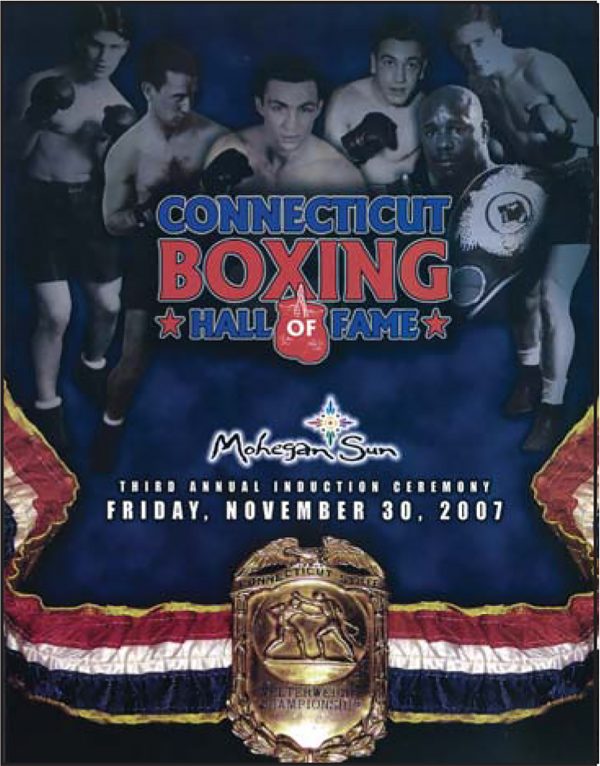
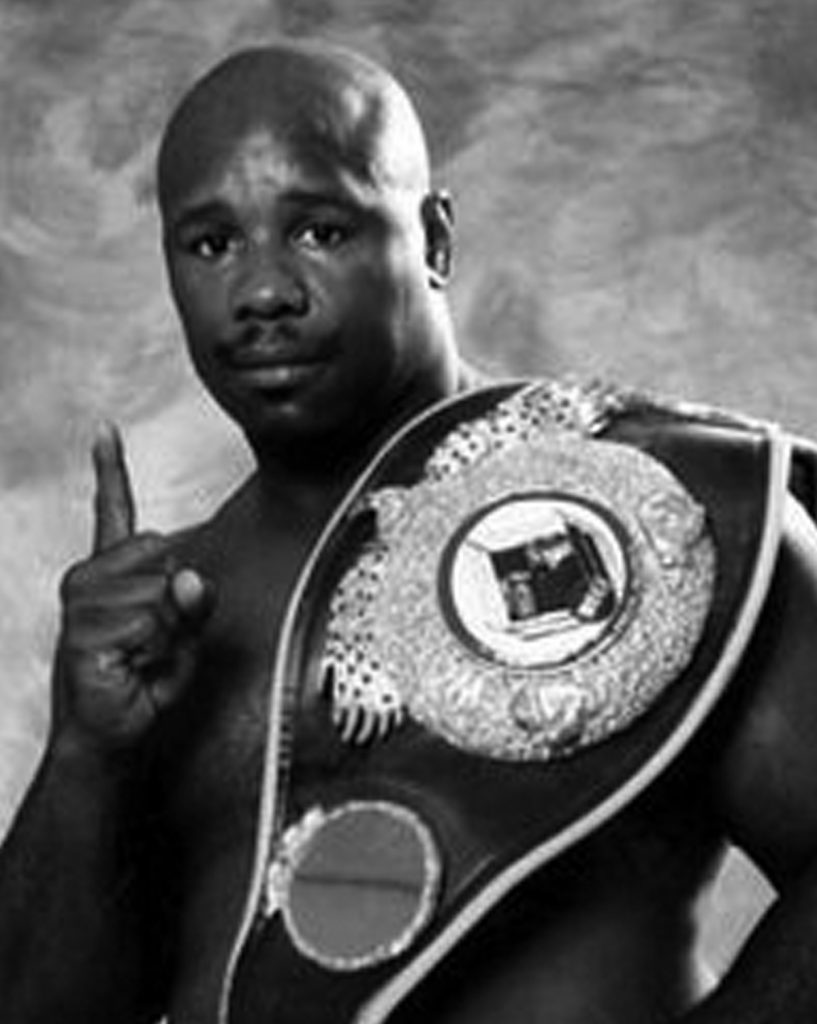
TYRONE BOOZE
Tyrone Booze was tough to discourage. He was a light heavyweight known to take on all comers. He had gone the distance with the likes of Evander Holyfield and Eddie Mustafa Muhammad, but failed to get that victory that would vault him into national prominence. Then on August 26, 1986, Booze appeared to have that breakthrough victory. A national television audience watched him dismantle a highly-regarded Bert Cooper. Famed television commentator Al Bernstein had scored the fight 8-3-1 for Booze. The judges, in what was considered highway robbery by those who watched the bout, gave the decision to Cooper. If there had been a Worst Decision of 1986 award, that fight would have won hands down.
Many fighters would have quit. Not Booze. He kept plugging along. Finally, he went over to England in July of 1992. He was expected to be mere canon fodder for World Boxing Organization cruiserweight champion Derek Angol, who was 26-0. Booze, 33 at the time, shocked the world when he knocked out the 28-year-old Angol in the seventh round to win the WBO cruiserweight title.
Now living in Florida, Booze went on to have one successful title defense before relinquishing his crown to Markus Bott, who won a unanimous decision in Germany in February of 1993.
Booze came up in the boxing stable of F. Mac Buckley. That boxing stable went on to produce two world champions in Marlon Starling and Booze. Booze and Starling, who was inducted into the CBHOF in 2005, remain close friends.
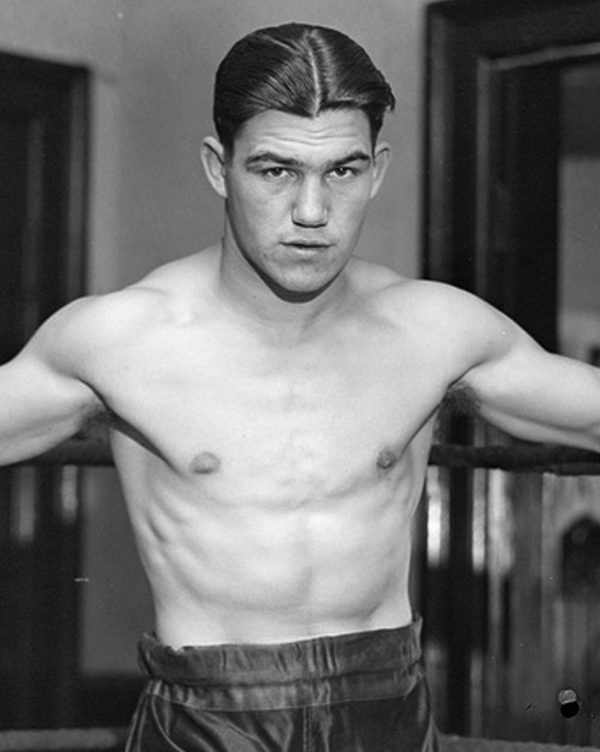
LOU BROUILLARD
Brouillard moved to Danielson during his career in the 1930s, but he was actually born in Worcester, Mass., on May 23, 1911. Brouillard was just 8-0 when he got an unexpected world title shot against Young Jack Thompson on Oct. 23, 1931. Brouillard, who had beaten Thompson earlier in the year, won the rematch and captured the world welterweight title at Boston Garden.
It was the first championship bout in Boston in 11 years. It was the first time since boxing was legalized in Massachusetts that a 15-round bout took place. Brouillard captured a unanimous decision. Brouillard knocked Thompson down in the 10th and 13th rounds. He became Connecticut ’s second ever world champion. Bat Battalino, a Connecticut Boxing Hall of Fame inductee in 2005, was the first.
Brouillard fought an incredible 141 times. He completed his career in 1940 with a fabulous record of 109-29-3. During his career, Brouillard also won a New England welterweight title. A southpaw who finished up his career as a middleweight, Brouillard died on September 14, 1984.
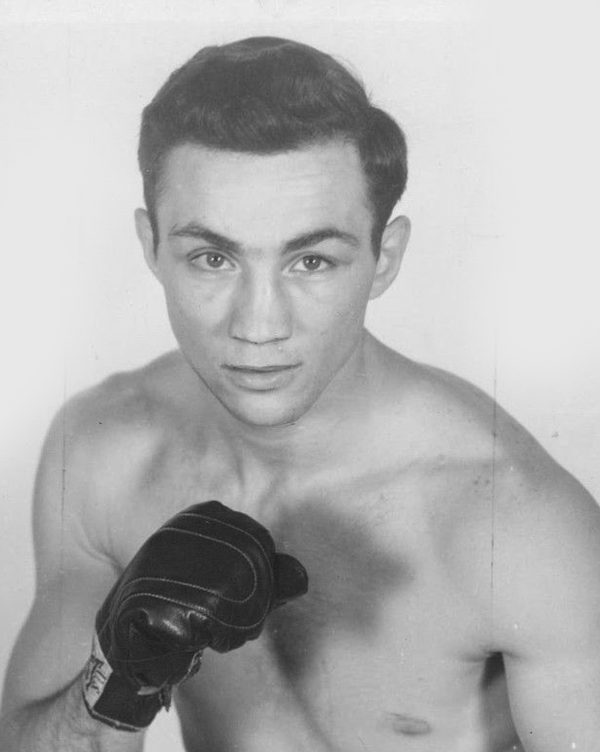
VIC CARDELL
A Hartford-born welterweight, the late Vic Cardell used superior boxing skills to ascend in the welterweight ranks. He fought 99 times, going 65-27-7 with 18 knockouts.
In the 1950s, Cardell fought a who’s who of boxing. Among his opponents were Ike Williams, Johnny Cesario, Chico Vejar, George Dun and Kid Gavilan. Vejar was part of the 2006 induction class for the Connecticut Boxing Hall of Fame; Cesario joins Cardell as part of the 2007 induction class.
Cardell earned a name for himself on Dec. 15, 1950. That’s when he scored a stunning victory over Carmen Basilio. Cardell won a split decision in a 10-round bout. Basilio would go on to win world welterweight and middleweight titles and be inducted into the International Boxing Hall of Fame. Cardell lost a rematch with Basilio in 1953.
Cardell never won a world title, and lost his only bid for a New England welterweight crown. Born in 1927, Cardell was just 20 when he began his pro career in 1948. It was a most unusual beginning. Cardell’s first two pro bouts ended in draws. He went on to win 14 of his next 16 fights to establish sterling credentials early in his career.
Cardell was an avid golfer and bowler who worked for the state department of transportation for 25 years after he retired from boxing. He died on Aug. 31, 1987, at the age of 59 from arterial sclerosis.
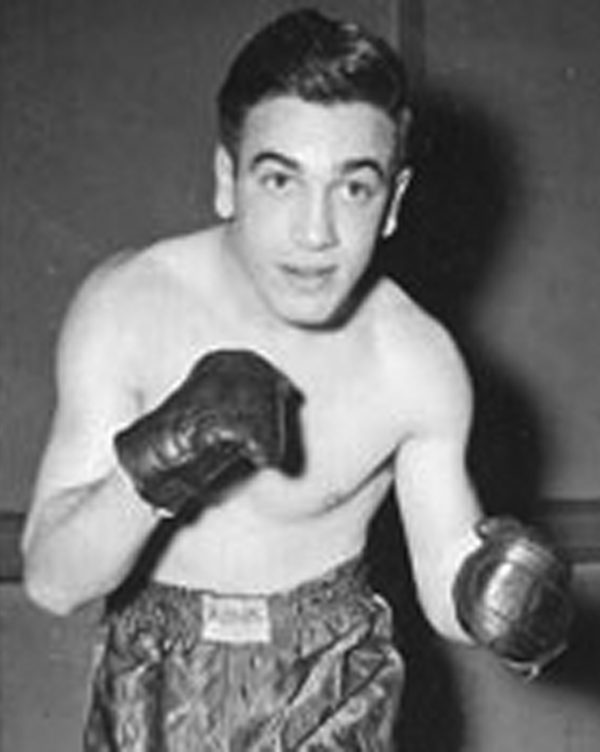
JOHNNY CESARIO
On Dec, 7, 1954 , Johnny Cesario stepped into the boxing ring and walked out a winner for the last time. No one likely would have guessed that 42 years later, Cesario would be inducted into the Connecticut Boxing Hall of Fame in the same class with Vic Cardell, the man he beat that day. Cesario’s final fight came in May of 1955. That was a loss to Chico Vejar, who went into the CBHOF as part of the class of 2006.
Born in Hartford on Dec. 11, 1925, Cesario finished his professional boxing career with a glittering 87-14-4 record. He was just 29 when he retired.
Cesario was only 19 when he had his first pro bout and he showed right off the bat that he would a boxer to be reckoned with. He knocked out Oscar St. Pierre in the fifth round. Cesario would go on to rule the New England welterweight division. In November of 1946, Cesario won a decision over Dave Andrews to capture the New England welterweight crown. He held the title for three years, finally losing it on a split decision to Ralph Zannelli in March of 1949 at the Boston Garden .
Cesario’s most notable win came in June of 1951. He won a decision over Carmen Basilio, who went on to become a world champion and is currently enshrined in the International Boxing Hall of Fame.
Cesario became Hartford ’s unofficial mayor after he retired from boxing in 1955. He was well known throughout the city, particularly after he became the director of concessions at the Hartford Civic Center. The popular Cesario would regale visitors to his basement office with stories about boxing and his relationship with the likes of legendary singer Neil Diamond, who was a big fan. Anyone who fought at the Civic Center from Sugar Ray Leonard to CBHOF class of 2005 inductee Marlon Starling made it a point to visit Cesario.
Cesario was 71 when he died in October of 1997.
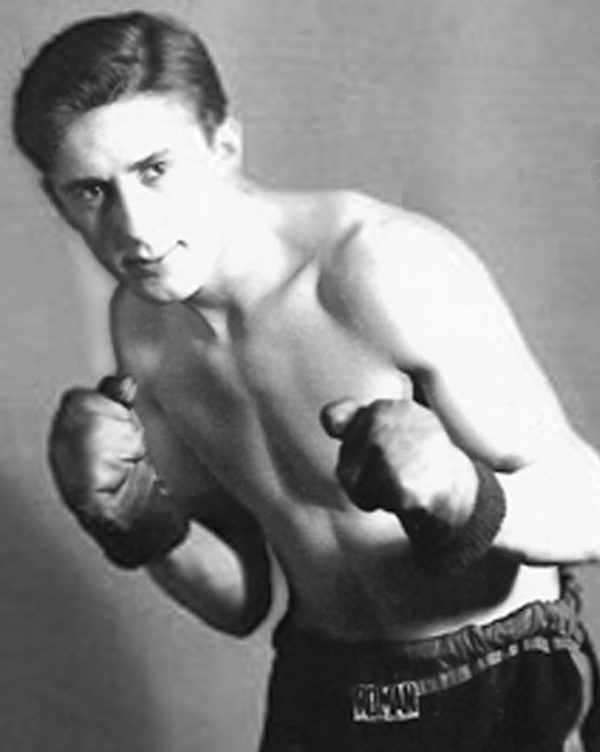
JOE ROSSI
The late Johnny Duke, a 2005 inductee into the CBHOF, was considered the most prominent amateur trainer in Connecticut history.
Duke left the Connecticut amateur ranks in good hands, as evidenced by the work of Joe Rossi. The 89-year-old Rossi still goes down to the Naugatuck YMCA four times a week to teach a boxing class. He’s been doing it for 68 years.
Upon being discharged from the Army in 1946, Rossi formed a boxing club at the Naugatuck YMCA. He developed numerous top-flight amateurs and a few professionals. One pro was Irish Pat Mallane, who had a draw with world lightweight champion Paddy DeMarco.
Rossi had 48 semipro bouts and one pro bout. He knew, however, his calling was as a trainer, and he began to concentrate in that area in the 1950s. The amateurs of note he developed included Sonny Asani and Tim Whalen, they formed the nucleus of a U.S. boxing team coached by Rossi and Tony Paoli of Waterbury.
Rossi is no stranger to awards. He won the Naugatuck Exchange Club Gold Medal Award for community spirit in 1967. Rossi is a member of Naugatuck’s Outstanding Athletes Hall of Fame.
Rossi embraced community activities. He was a member of the Knights of Columbus, the Elks Club, the Exchange Club, the VFW and the American Legion. He remains the most popular boxing figure in the Naugatuck Valley.
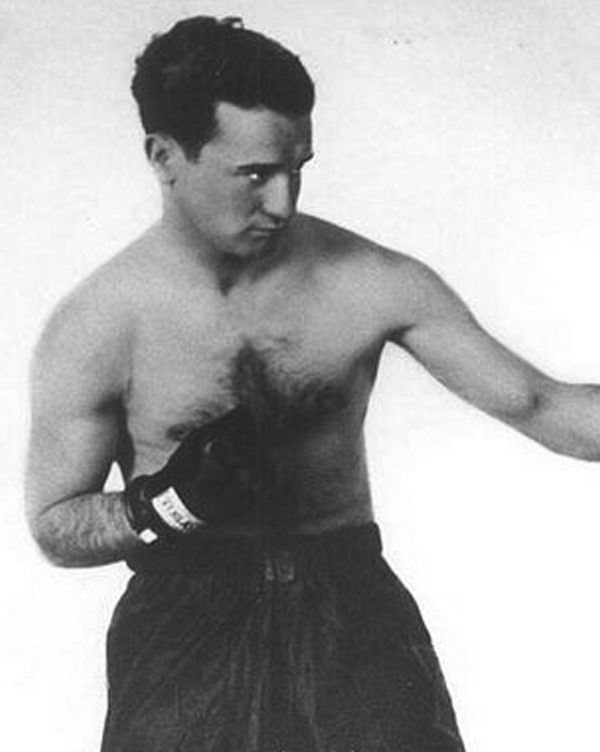
PINKY SILVERBERG
Silverberg is Connecticut’s forgotten world champion. Several years ago, you could have gone to any boxing Web site and not found a single reference to Silverberg. Through the diligence of his son Ron, who had Cyber Boxing Zone, a web site that researches boxing’s history, dig into the career of his dad, Pinky Silverberg’s accomplishments were resurrected.
Silverberg, whose roots were in Ansonia, won the vacant National Boxing Association world flyweight title in October of 1927 at the State Armory in Bridgeport. Silverberg won when his opponent, Ruby Bradley, was disqualified in Round 7.
The victory proved that you didn’t need to go to New York, Boston or Philadelphia to earn national recognition. Silverberg spent most of his career fighting in Connecticut venues in Hartford, Meriden, New Haven, Waterbury, Norwalk and Bridgeport. He won the Connecticut Flyweight Championship in Ansonia in 1925.
Unfortunately for Silverberg, he kept his NBA world title for just seven weeks. Boxing politics, prevalent even back in the 1920s, caused Silverberg to be stripped of his title. The Connecticut state boxing commissioner at the time, Thomas E. Donohue apparently felt that Silverberg should not continue as champion because he had performed poorly in a non-title bout.
Silverberg kept on fighting, and on March 4, 1937, he left the sport a winner. Silverberg captured a unanimous decision over Frankie Reese to finish his career 34-34-14. He was stopped only once in his lengthy pro career.
Silverberg died on Jan. 16, 1964. He was 59.

